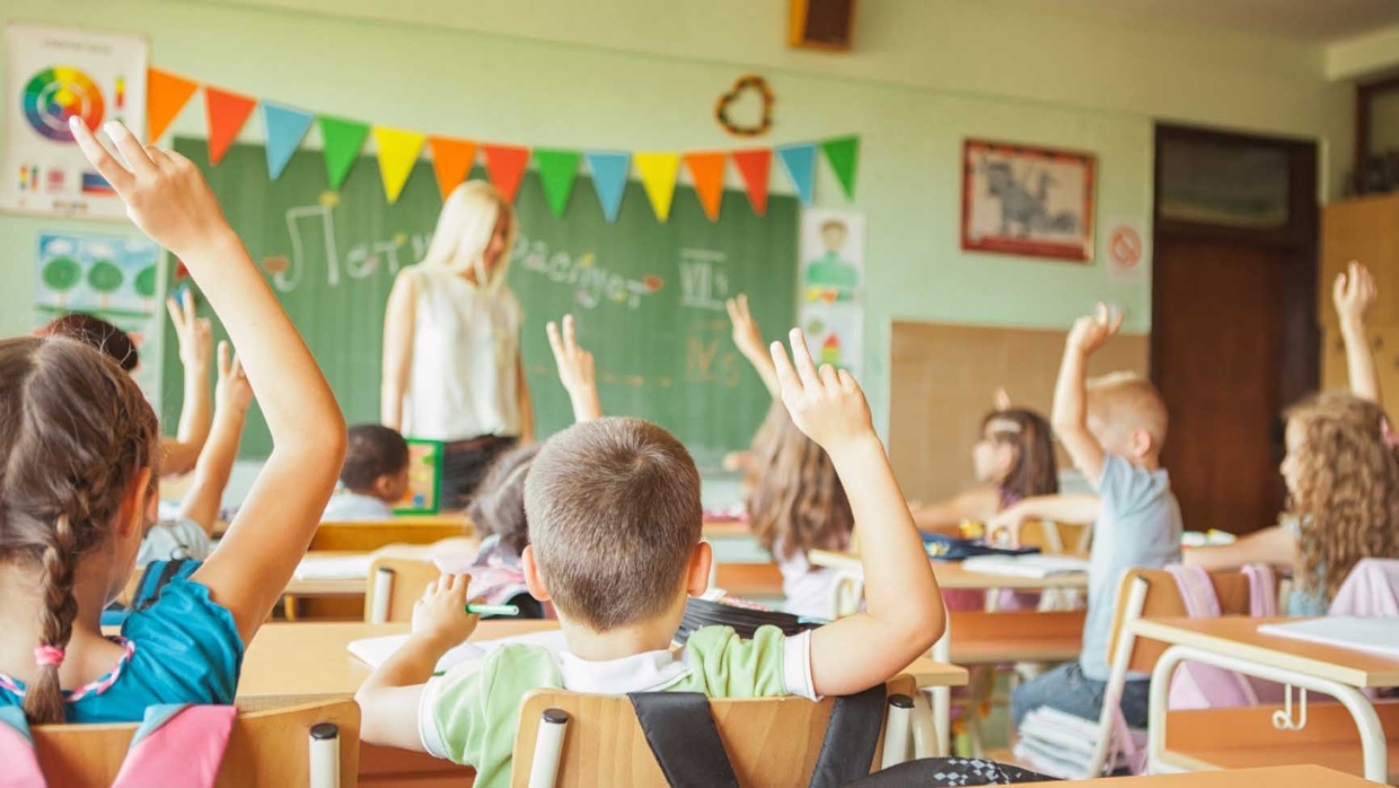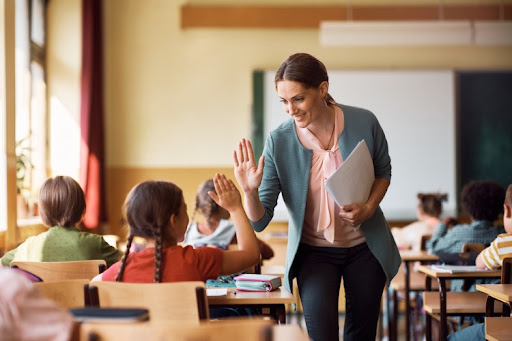Achieve Academic Success with Primary Science Tuition Singapore
Exploring the Different Training Methods in Main Scientific Research Education Today
The landscape of main science education is advancing, with various mentor techniques acquiring prestige in modern classrooms. Inquiry-based discovering, hands-on experiments, and the assimilation of technology are redefining exactly how instructors involve young minds. In addition, collective strategies and set apart instruction are being employed to accommodate the varied demands of pupils, enhancing both engagement and understanding. As we analyze these methodologies, concerns develop concerning their efficiency and the effects for future educational methods. What might these shifts in technique mean for the next generation of learners?
Inquiry-Based Discovering
Inquiry-Based Knowing (IBL) is an instructional approach that encourages students to discover clinical principles with questioning, examination, and hands-on testing. This technique stresses the duty of pupils as active participants in their learning, promoting vital thinking and analytic skills. By engaging with real-world questions, students become interested and inspired, which boosts their understanding of clinical principles.
In IBL, educators act as facilitators, leading pupils as they browse their inquiries instead than providing information straight. This student-centered technique enables differentiation, suiting various finding out styles and paces. Trainees develop skills in formulating theories, creating experiments, and assessing information, which are important for scientific literacy.
In addition, IBL fosters cooperation amongst trainees, motivating them to share findings and concepts. This collective query promotes social abilities and a feeling of neighborhood within the class. Furthermore, the process of query urges durability, as trainees discover to embrace failing as a stepping rock toward understanding.
Hands-On Experiments
Hands-on experiments are a crucial part of efficient science education, complementing the principles of inquiry-based knowing. These experiments permit pupils to engage straight with clinical principles, fostering a deeper understanding via experiential knowing. By controling products and observing results, young learners can realize abstract concepts in substantial means.
Such tasks promote essential reasoning and problem-solving abilities, as trainees hypothesize outcomes, conduct experiments, and analyze outcomes. This procedure encourages them to ask concerns, refine their understanding, and establish a scientific attitude. Furthermore, hands-on experiments can be tailored to varied understanding designs, ensuring that all trainees have the chance to engage meaningfully with the web content.
Additionally, hands-on experiments commonly motivate cooperation amongst peers, promoting teamwork and interaction abilities. Operating in groups enables students to share ideas, review findings, and learn from one an additional, which improves their general academic experience.
Including hands-on experiments into the main science educational program not only enhances the finding out environment but also grows a lifelong rate of interest in science. By proactively taking part in their education, pupils are more likely to establish a passion for scientific query that prolongs past the classroom.

Technology Combination
Incorporating innovation into primary science education and learning has actually ended up being increasingly important in cultivating student interaction and enhancing learning outcomes. Using electronic tools, such as interactive simulations, virtual laboratories, and educational software application, offers students with possibilities to discover scientific principles in ingenious ways. These sources assist in a deeper understanding of complicated subjects by permitting learners to envision and manipulate variables that would certainly be unwise in a traditional class setting.
Moreover, innovation assimilation motivates personalized finding out experiences. Pupils can advance at their own rate, taking another look at tough concepts via multimedia sources, which satisfy various discovering styles. This flexibility not just sustains private growth however additionally grows a sense of autonomy in learners.
In addition, technology serves as a bridge to real-world science, linking trainees with existing research study and specialist contributions. Access to online data sources and scientific journals widens students' viewpoints on scientific questions and cultivates vital believing abilities.
Collaborative Discovering
Collaborative understanding plays a crucial function in primary scientific research education and learning by fostering synergy and communication abilities amongst pupils. This technique encourages learners to collaborate, share expertise, and participate in analytical, which improves their understanding of scientific concepts. By taking part in team activities, trainees discover to articulate their concepts, pay attention to varied point of views, and negotiate remedies, all of which are necessary skills in both real-world and academic contexts.

Study shows that joint knowing can result in enhanced motivation and involvement in science topics, as pupils find enjoyment in shared experiences (primary science tuition Singapore). In addition, this approach prepares trainees for future collaborative ventures, outfitting them with the abilities essential for reliable teamwork in college and specialist settings. Eventually, embracing collaborative understanding in main scientific research education can considerably enhance the look what i found understanding experience and advertise a much deeper understanding of scientific questions
Set Apart Direction

Differentiated instruction can manifest in various ways, such as differing the material, processes, or products of discovering. For example, instructors might use tiered projects that provide differing degrees of intricacy, permitting pupils to function at their respective preparedness levels. Additionally, adaptable pop over here grouping strategies can promote partnership among trainees with various capacities, cultivating peer knowing.
Assessment plays a critical role in this strategy, as it educates guideline and aids educators recognize each student's special demands. Developmental evaluations, such as observations and quizzes, can assist instructors in changing their methods to boost learning results. primary science tuition Singapore. Eventually, by executing distinguished instruction in key scientific research education, educators can cultivate a more effective and fair learning environment, equipping all students to reach their complete capacity in recognizing scientific sensations
Conclusion
In recap, the varied teaching techniques in primary scientific research education, including inquiry-based understanding, hands-on experiments, modern technology combination, collective knowing, and distinguished direction, collectively contribute to a much more efficient learning environment. These approaches promote important thinking, problem-solving skills, and a much deeper understanding of scientific principles. By implementing these techniques, educators can produce engaging and helpful classrooms that address the different needs of pupils, inevitably fostering a long-lasting passion in science and improving scholastic achievement.
Inquiry-Based Understanding (IBL) is a pedagogical strategy that motivates students to check important site out scientific principles via wondering about, investigation, and hands-on trial and error.Collaborative learning plays an essential duty in key scientific research education by cultivating team effort and communication skills amongst pupils.Research suggests that joint discovering can lead to boosted motivation and involvement in science subjects, as trainees find satisfaction in common experiences.In cultivating an inclusive understanding setting, set apart direction arises as a crucial strategy to accommodate the diverse requirements and capabilities of pupils in key scientific research education and learning. Eventually, by applying separated instruction in key science education and learning, teachers can grow an extra reliable and fair knowing environment, encouraging all pupils to reach their full capacity in recognizing clinical phenomena.